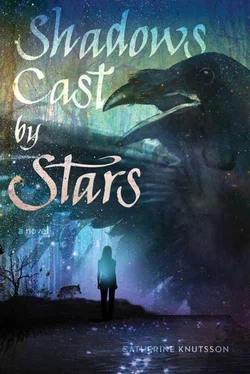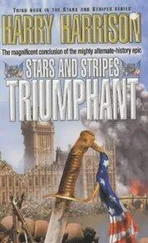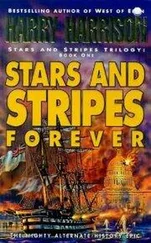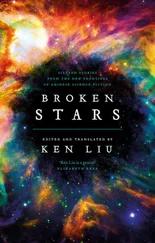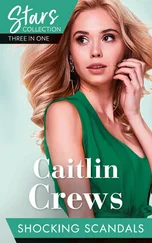She interrupts me to wave at the rest of the books. “Bran’s father brings me these,” she says. “He’s such a generous man, always thinking of me and Bran, always making sure we have everything we need. Did you know, when he first brought me here, back when I wasn’t much older than you, he brought me flowers every day? And made sure I had real tea? And when Bran was born, the look on his face! He knew his son would grow up to be as strong as him, a real leader, someone who had the fortitude to walk in his footsteps.”
I glance at her, wondering why she speaks of Arthur Eagleson in the present tense, but her gaze is elsewhere, as if she’s listening to something that I cannot hear. But then she blinks, like she thought I was someone else. “Continue,” she says.
So I do. When my tongue stumbles over a Latin passage, Grace corrects me, eyes closed, hand dancing in the air as if conducting a symphony. “Repeat after me: Hic jacet Arthurus… ”
She knows the book by heart, and yet I’m still required to read?
This is a test. I’m acutely aware of that, and if I pass, Grace will permit me to spend time with her son. Fail, and I will be deemed unfit.
Am I worthy stock? Are my cheekbones arched high enough? Is my hair the right color? My breasts supple enough to feed the hungry sons I will bear, sons destined to become warriors for the Band?
Her answer to those questions? I may never know. But I care. I shouldn’t, but I do.
Just when I think I can’t bear it any longer, Bran and Paul burst through the door like tempests, breaking the oppressive atmosphere. Paul leans against a bookcase while Bran flops down next to me and tugs at my shoelace. He smells of varnish and sawdust. “Why are you making Cassandra read to you, Mother?”
“Because, my son, reading aloud is a cultured pastime. We may live in the wilds, but we are not savages.”
“Speak for yourself,” he says, giving me a wicked grin. “I like being savage. When’s tea? We’re starving.”
Grace glares at him. “When I make it.” She sighs dramatically, then takes the book from my hands, places it on a shelf, and drifts away.
Bran nods at Paul, who turns and tiptoes after Grace. “She’s outside, smoking,” he says when he returns.
“Never smokes in the house. She’s afraid she’ll damage my lungs or something. She didn’t give you too much of a hard time, did she, Cass?”
“A bit,” I say as I find my way to my feet. “But I managed.”
“You shouldn’t have to manage,” he says. “Sorry about that.” He steps past Paul into the hall, then quietly opens a door leading into a darkened corridor. “This way,” he whispers. “Time to get out of Dodge.”
W e walk into town. Cicadas rise up before us like gilt-winged heralds, singing of our approach. I carry a book under my arm. Bran ran back to get it for me. He and Paul want to play football, and he was worried I’d be bored.
We pass a garden so beautiful I can’t help but stop and stare. Sunflowers in full bloom reach to the sky. Apples dangle from their trees, green and glossy and waiting to ripen. Cabbage. Tomatoes. Squash. Pole beans dotted with scarlet blossoms, and everywhere, the sound of bees. I haven’t heard a bee sing since I was a little girl. I’ve always had to fertilize our plants by hand, going from flower to flower with a tiny paint brush.
The garden is full of women working, bent backed, their heads bobbing up and down between the rows. I look for Helen, the girl from the store, among them, but she’s not there. A few of the women look up as we pass, and the resentful glares on their faces leave me wanting to tell them I will work, I will work hard. I know that the Old Way takes care of those who toil, but I suspect, even if I spoke the words, they would not hear me.
Bran doesn’t say anything when I start walking again, but he does smile.
When we reach the town, I settle in the shadow of an ancient chestnut tree while Paul and Bran jog across the park, hollering at the boys who sit in the shade on the other side.
Bran immediately takes charge. He divides the players up-Bran and Paul on one team, with the stout, dark-haired boy I first saw at the store captaining the other. The opposing team strips off their shirts and uses them to make goal lines while Bran and Paul talk strategy. I sigh wistfully and open the book. At least I’m spared from seeing Bran without his shirt. His mother’s words still sting my ears. An entangler of men? No, I suppose not .
Something drops on the ground near me and I look up to see the stout boy throwing shirts not far from where I’m sitting. His shade, a muskrat, peeks its head out from behind his shoulder. The boy has a coarse face and his body is heavy with muscle. Strong like bull, smart like rock , my father would say. The boy glances at me, then jogs away.
I don’t like him. He makes me feel the need to curl up into myself like a snail. A sudden headache pulses at my temple, reminding me that I was uprooted and transplanted only a day ago. I’m sensitive and edgy, none of which has anything to do with the muskrat boy. Judging him when I’m in this condition isn’t really fair, but something is pricking my mind in warning, and I can’t ignore that, either.
The game gets under way. Bran tackles a tall, longhaired boy, flinging him to the ground with careless ease, and apologizes as he gives him a hand up a second later.
I turn another page, and a gray feather, almost the same color as Bran’s eyes, slips into my hand. I twirl it between my fingers. A bookmark, or a gift?
The latter, I hope. I wish.
I yawn, and let my eyes close.
I dream .
I dream of a woman, crabbed with age. She cuts my hair. “Sit still,” she says. “Squirm and I’ll end up cutting you.”
I place my hands on the red vinyl seat and do my best not to move, but as my hair drifts around my shoulders in newly shorn wisps, I can’t help myself. It tickles my neck, my ears, my arms. The old woman issues another warning and swats my ear. I try, I try. “I can’t help it,” I say. “It’s beyond my control.”
She takes her shears and snips my earlobe. Blood courses down my neck .
“Now you’ve done it,” she says .
Shouting wakes me. I bolt upright and touch my ear. A sugar ant falls into my hand and without thinking I squish it under my thumb as I seek out the source of the commotion.
Paul stands behind the far goal line, crowing, while Bran performs a celebratory war dance. Some of the boys join in, whooping and hopping as the other team huddles together in conference.
The muskrat boy’s head pops out of the scrum. “Penalty on the play. No touchdown!”
“Says you, lead-foot.” Paul tosses the football to Bran.
The muskrat boy’s face screws into a scowl. “Whatever you say, apple.”
Paul freezes. I can see he’s fighting himself, that he wants to walk away, but he can’t. Apple. Red on the outside, white on the inside. One of the worst insults an Other can throw. The muskrat boy thinks he’s gotten the best of Paul and turns away, and that’s when Paul attacks him, taking him by surprise so they both fall to the ground. Bran jumps in, and by the time I’ve made it to my feet, all the boys are fighting, a swarm of fists and elbows.
A man walking by shouts at them to stop. When he’s ignored, he dashes off and returns with two more men in tow.
I run over and stare, helpless.
“There’ll be no reasoning with them,” the tallest of the three men says to me. A scar runs down his face like a great, angry river. “Better cover your ears.” He puts his fingers to his lips and lets loose a piercing whistle. His two companions cross their arms and wait.
Читать дальше
